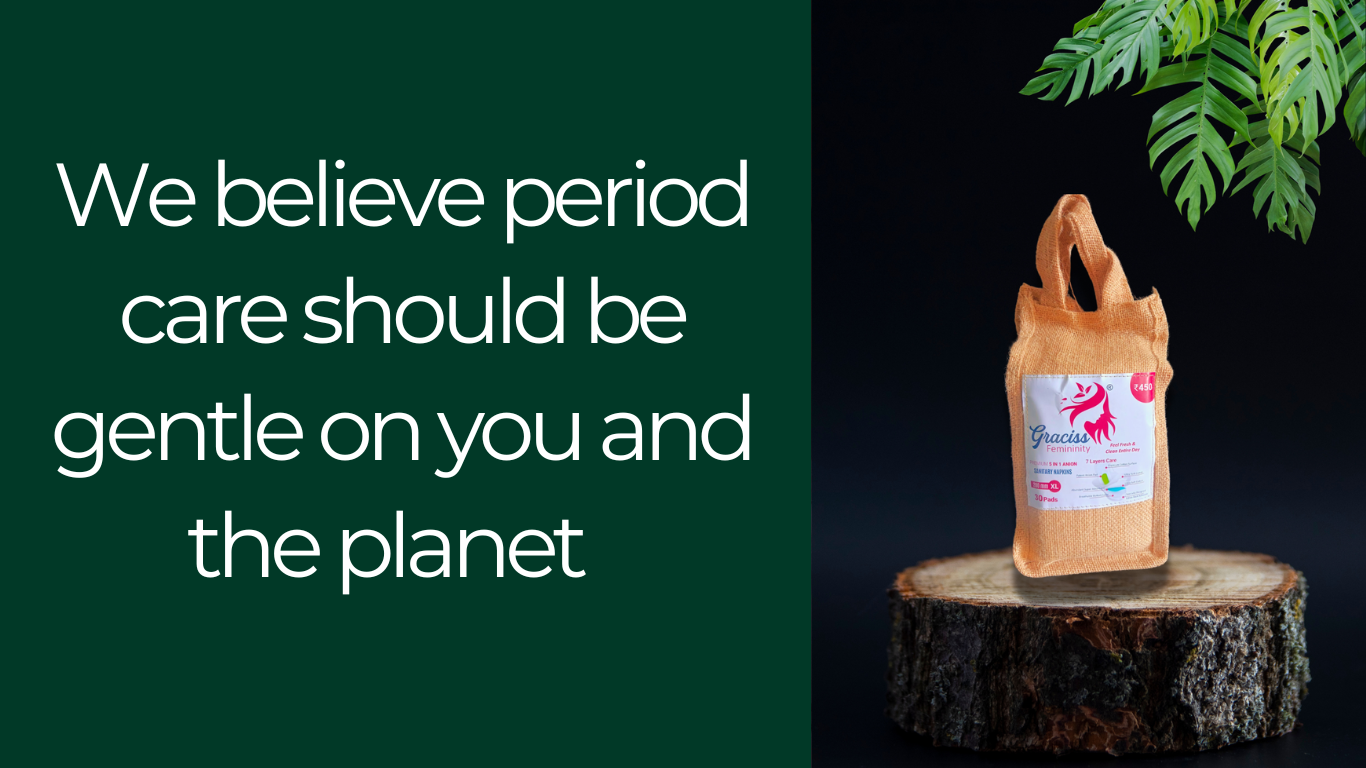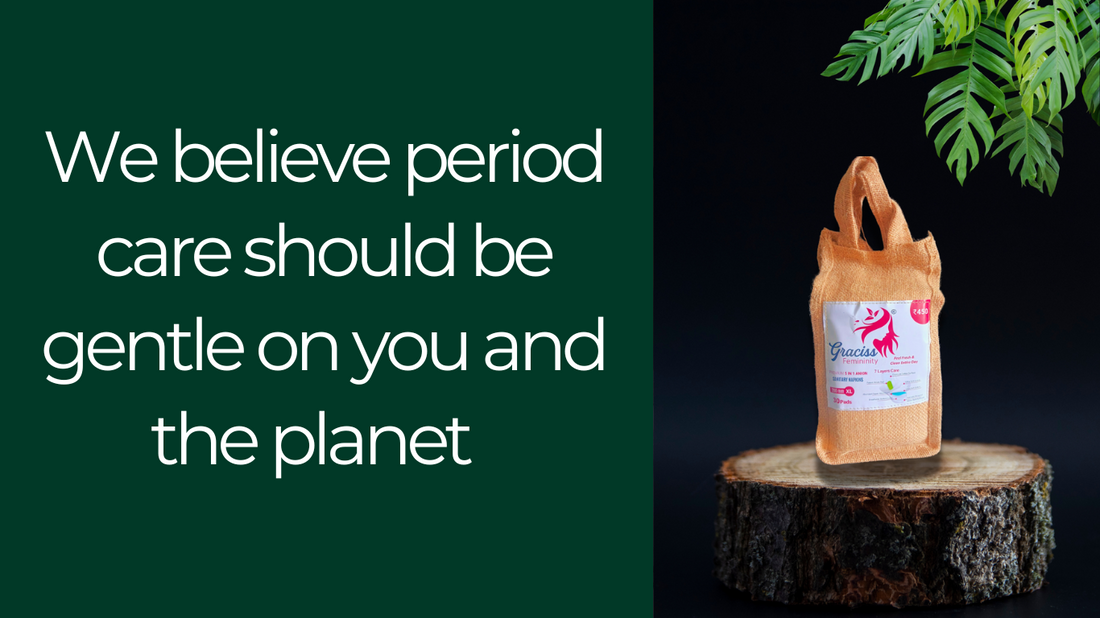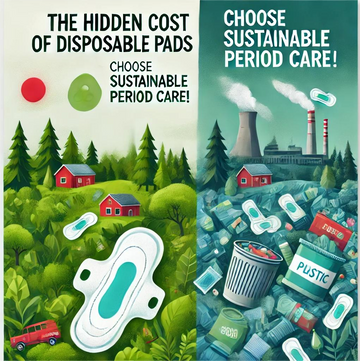


Environmental Impact of Disposable Sanitary Pads!
Over 12 billion disposable sanitary pads are used annually in India, most of which contain plastic and take 500-800 years to decompose. Lack of proper disposal systems leads to landfill overflow, open burning, and water pollution, harming both human health and the environment.


A Sustainable Menstrual Revolution
Menstruation is a natural process, but the way we manage it has a profound impact on both women’s health and the environment. The time has come for a Sustainable Menstrual Revolution—Graciss ensures menstrual hygiene products are safe, accessible, and eco-friendly.

The Way Forward: A Sustainable Menstrual Revolution?
Promoting biodegradable sanitary napkins, menstrual cups, and reusable cloth pads as accessible alternatives.
Strengthening menstrual education to break taboos and encourage sustainable choices.
Implementing better disposal and waste management solutions for menstrual products.
Encouraging sustainable menstrual hygiene is not just an environmental necessity but also a step towards empowering women and ensuring better health and dignity for all.
